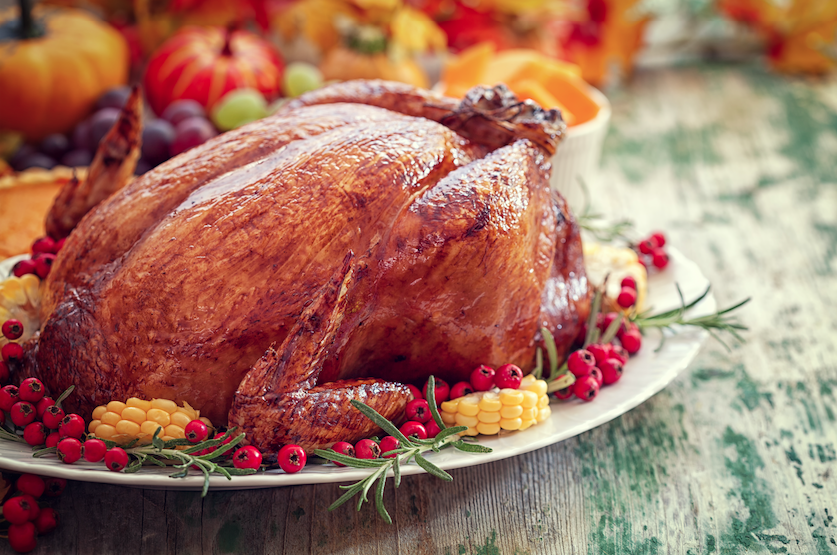Disclaimer: Although not everyone may eat turkey, there’s still solid advice in the article below for any frozen meat you might thaw and cook for your holiday meal. Happy Thanksgiving from all of us at Bibb County Extension!
AUBURN UNIVERSITY, Ala. – Thanksgiving is just around the corner, and the star of the holiday table is the turkey. Before it makes its way to the table, your turkey must be properly thawed and prepared. Depending on the size of the bird, the process could take anywhere from several hours to several days to thaw completely. An Alabama Extension professional offer tips on thawing your turkey this holiday season.
“Though you do not have to thaw the turkey prior to cooking it, it will take about 50 percent longer to cook from frozen state than when completely defrosted,” said Bridgette Brannon, an Alabama Extension regional food safety agent.
Thawing in the Microwave
When thawing a turkey in the microwave, it is important to refer to the manual. This will tell you what size turkey will fit in your microwave, minutes per pound required for that bird and the power level to use to fully thaw it. Microwave the turkey breast side down on a microwave-safe dish on defrost for one-fourth of the suggested thawing time.
Check for warm areas, such as tips and wings, and shield them. The turkey should then be moved breast side up, and defrosting should continue for another one-fourth of the time before rotating again and finishing the defrosting process.
“Upon thawing a turkey in the microwave, it should be cooked immediately,” said Brannon.
Thawing in the Refrigerator
According to Brannon, the safest way to thaw a turkey is in the refrigerator.
A turkey being thawed in the refrigerator should be kept in its packaging. This prevents cross-contamination with other items that it may come into contact with. The bird should be placed on a pan on the bottom shelf of the refrigerator.
Allow 24 hours of thawing time for every four to five pounds of turkey.
“You can keep the turkey in the refrigerator for up to two days if thawed correctly. If you are refreezing it, this must be done within two days of thawing,” Brannon said.
Food Safety
Brannon warns cooks to beware of the temperature danger zone when thawing frozen turkeys. This zone is between 41° and 135° Fahrenheit (F). In this zone, pathogens can grow very quickly. For this reason, the turkey should not be thawed at room temperature. It is important to ensure that it is thawed correctly under temperature control.
Brannon offers the following tips to ensure food safety when preparing your turkey this holiday season.
- Ensure that the turkey is thawed at the proper temperature.
- Everything that comes in contact with the turkey should be washed in warm, soapy water.
- After the turkey is thawed and prior to cooking it, the giblets should be removed from the cavity and cooked separately.
- When preparing the turkey, do not cook it at a temperature lower than 325° F.
- It is recommended to cook the stuffing in a pan separate from the turkey, not inside of the bird’s cavity.
- The turkey and dressing must be cooked to a temperature of 165° F.
When testing the temperature of the bird, check several spots to ensure that the bird is cooked evenly throughout. These spots should include the innermost part of the thigh and wing, as well as the thickest part of the breast.
More Information
Find more food safety information by visiting Alabama Extension online.














